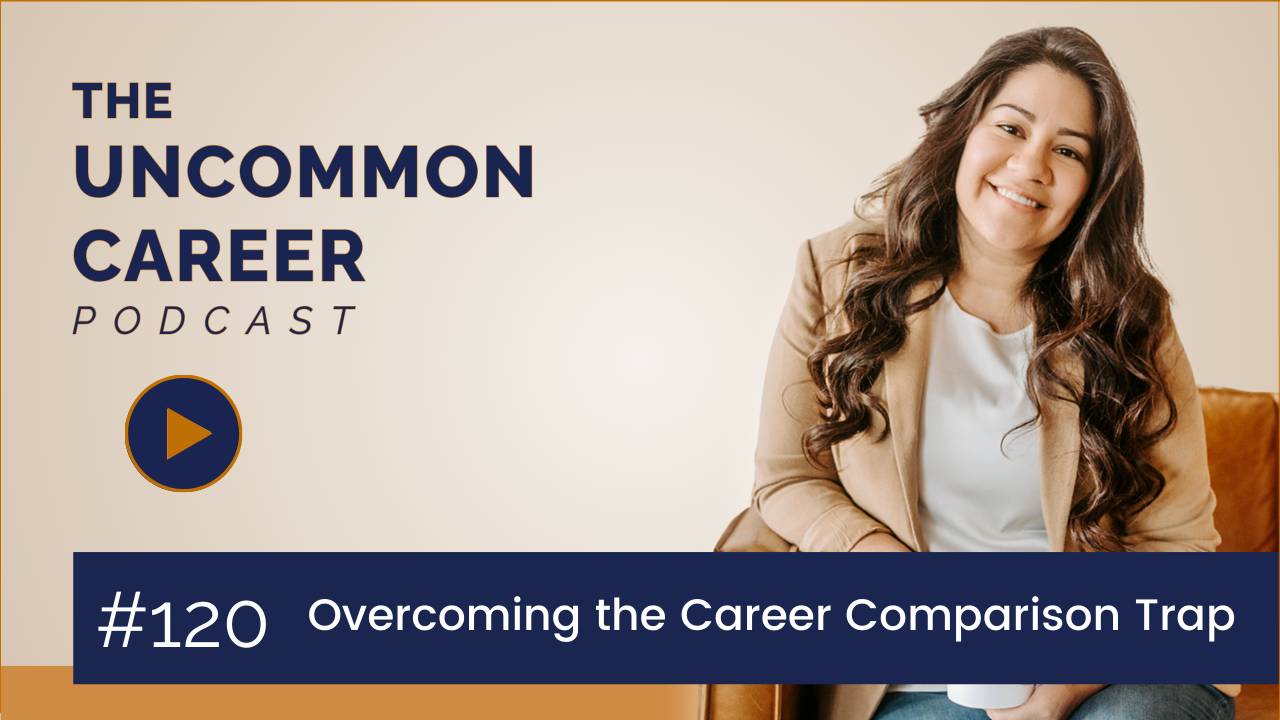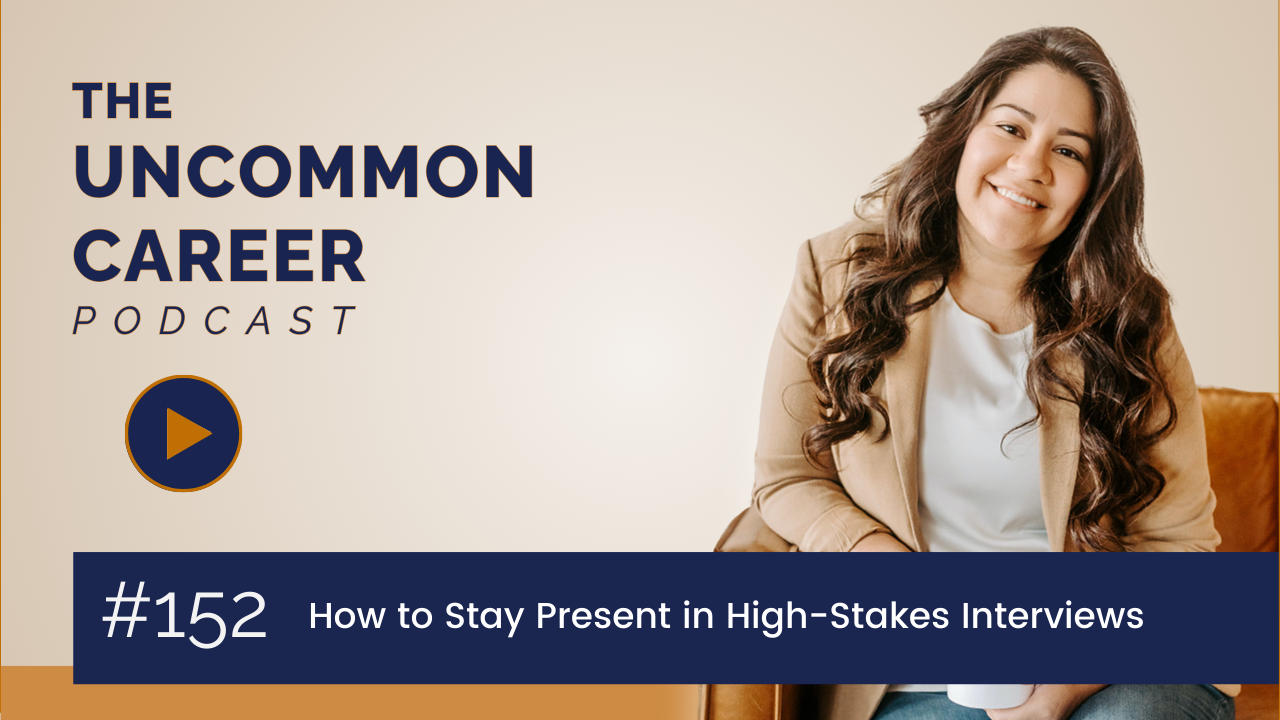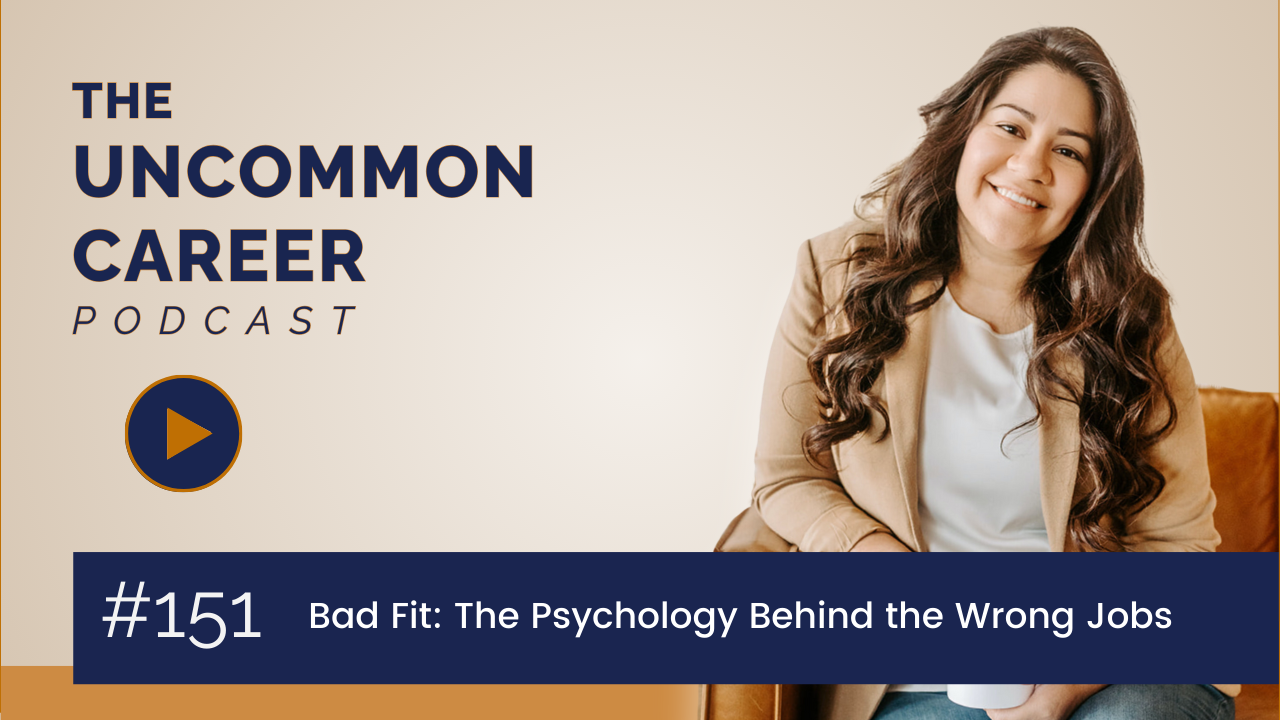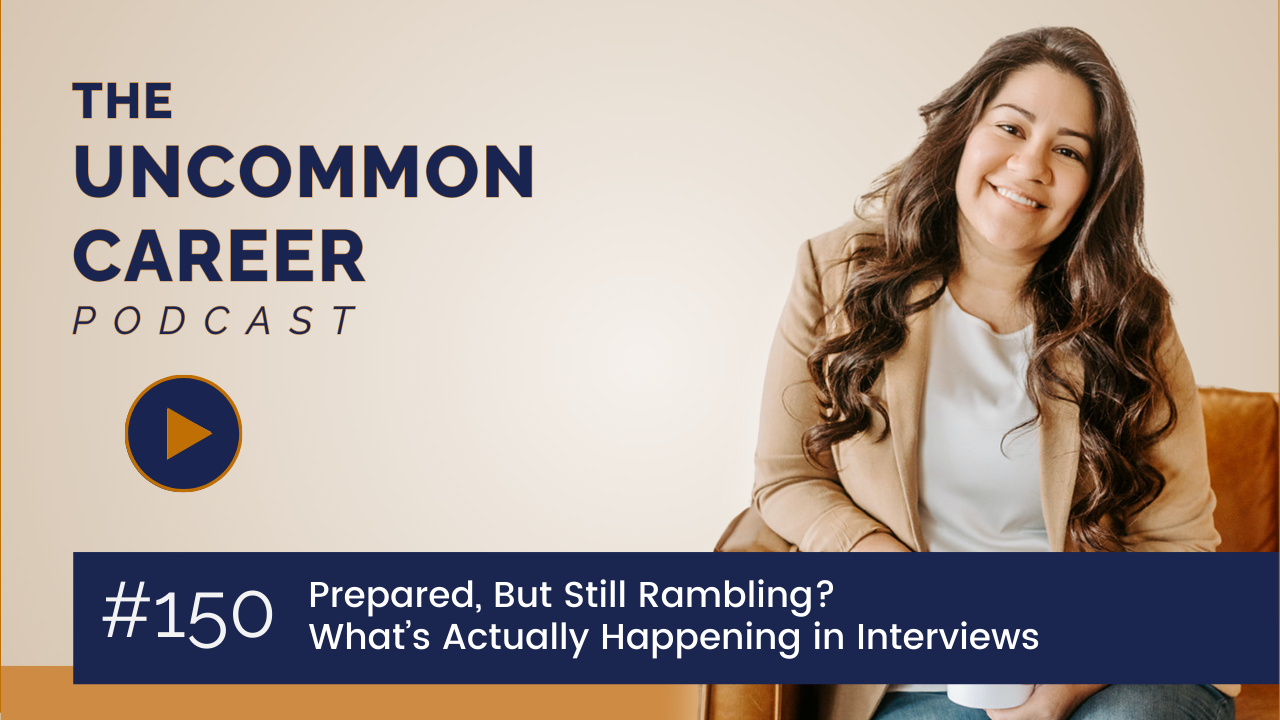120. Overcoming the Career Comparison Trap
Jul 15, 2025
Overcoming the Career Comparison Trap: Turning Self-Doubt into Strategy
Scrolling through LinkedIn and seeing those “I’m thrilled to announce…” posts. Watching someone else celebrate their new role while still waiting for an offer. Hearing about a friend who found their dream job.
Comparison is unavoidable in the job search. But it doesn’t have to be destructive. It can be transformed into one of the most effective tools for personal growth and career clarity.
This isn’t about ignoring comparison. It’s about harnessing it. About recognizing when it becomes an unhelpful spiral—and intentionally redirecting it to propel things forward.
|
Listen on your favorite podcast app: |
| |
Why Comparison Happens—And Why It’s Normal
The brain is wired to categorize, evaluate, and compare.
This instinct isn’t a flaw—it’s survival. It helps process massive amounts of information quickly.
In a job search, that means assessing:
-
“How do I stack up against others in my field?”
-
“Why are others getting offers while I’m still waiting?”
-
“Am I even good enough?”
This mental habit works quietly, under the radar.
Without noticing, thoughts shift from neutral comparison into negative self-judgment.
That shift can create a downward spiral—one that kills motivation, clarity, and momentum.
Naming the Trap: The Silent Spiral
Comparison feels personal because it is personal.
But left unchecked, it grows into self-doubt, second-guessing, and avoidance.
The cycle often looks like this:
-
Seeing another announcement online.
-
Asking, “Why not me?”
-
Focusing on that gap in results without understanding context.
-
Filling in the blanks with self-critical stories.
-
Losing motivation to apply, network, or prepare.
The end result?
Less action, fewer opportunities, and a reinforced belief that “others succeed but I can’t.”
Reframing Comparison as a Tool
Here’s the shift: Comparison isn’t bad. It’s data.
It’s information that can highlight gaps, reveal patterns, and show new paths forward.
Comparison is simply a question waiting to be answered:
“What do I need to know to get there too?”
With that mindset, comparison becomes fuel for strategy instead of an obstacle.
Scenario 1: “Why Is Everyone Else Getting Hired But Not Me?”
This question often hits hardest.
Seeing peers land roles while waiting on interviews or facing rejections can be demoralizing.
But this question points to a knowledge gap.
Without answers, the brain fills in the blanks with emotional assumptions:
-
“They’re better than me.”
-
“I’m not good enough.”
-
“I’ll never get hired.”
Instead, treat it as a research prompt:
-
“What industries are they in?”
-
“What roles are they targeting?”
-
“How did they position themselves?”
-
“How many applications did they send?”
-
“How are they networking?”
Action step: Fill in the blanks with real information.
Learn from what’s working for others—then adapt it to fit personal strengths and goals.
Scenario 2: “They Found Their Dream Job—Why Can’t I?”
It’s easy to see someone announce landing a “dream role” and assume the same is out of reach.
But that moment of comparison is an invitation to clarify goals:
-
What does a dream job actually mean?
-
Is the goal really a dream job or a dream life?
-
Is the dream to climb the ladder, or to create space for family, hobbies, rest?
Not everyone wants the same thing. Not everyone defines “dream” in the same way.
Action step: Turn envy into exploration. Define personal values, strengths, and priorities.
Use that clarity to target roles that truly align, not just those that look good online.
Scenario 3: “I Could Never Be That Good in an Interview”
Watching a polished, charismatic interview answer can trigger instant self-doubt:
-
“I’m not that articulate.”
-
“I’m too quiet.”
-
“I don’t have that energy.”
But different doesn’t mean worse.
Not everyone wins an interview by being the most animated speaker. Many succeed by being calm, thoughtful, or strategic.
Comparison here highlights a skill to develop—not a reason to quit.
Action step: Pinpoint one thing to practice. Maybe it’s clearer storytelling, slowing down to avoid filler words, or showcasing calm confidence.
Instead of trying to become someone else, focus on becoming the best version of what’s already authentic.
Making Comparison Work for You
Comparison becomes damaging only when left unexamined.
It thrives in assumptions and half-formed stories.
Redirect it by asking three core questions:
-
Knowledge: What am I trying to learn?
-
Clarity: What do I want, specifically?
-
Guidance: Who or what can help me get there?
This shift reframes comparison from an exercise in inadequacy to an exercise in strategy.
Using Comparison as a Map, Not a Mirror
Comparison shouldn't be about mimicking someone else's journey step-for-step.
Instead, it offers a map of possibilities:
-
“What paths exist?”
-
“What skills get noticed?”
-
“What industries are thriving?”
-
“What branding works in this field?”
Not to replicate blindly, but to adapt intentionally.
Comparison shows what's out there.
Personal clarity shapes what’s actually right.
Finding Support to Break the Cycle
Comparison spirals thrive in isolation.
Talking through fears, doubts, and ideas with others helps break the loop.
Whether with friends, mentors, or coaches, discussing these thoughts turns them from vague worries into concrete plans.
This isn't about eliminating comparison.
It's about managing it, interrogating it, and channeling it toward growth.
Shifting From Competition to Curiosity
Ultimately, comparison can fuel either competition or curiosity.
Competition says:
-
“I need to beat them.”
-
“I’m behind.”
-
“They’re my rival.”
Curiosity says:
-
“How did they do that?”
-
“What can I learn?”
-
“What’s one thing I can try next?”
Choosing curiosity over competition turns envy into education—and replaces paralysis with momentum.
Moving Beyond the Trap
Comparison isn’t going away. It’s part of being human.
But it doesn’t have to define the job search in a negative way.
With intentional practice, it can be transformed into:
-
Motivation to research and refine strategy.
-
A prompt for self-reflection and goal-setting.
-
A tool for continuous growth and improvement.
So the next time that pang of comparison hits, pause.
Look for the question behind it.
Turn the frustration into fuel.
And use it to take the next smart step forward.
This journey is personal. And it doesn’t have to look like anyone else’s to be successful.













